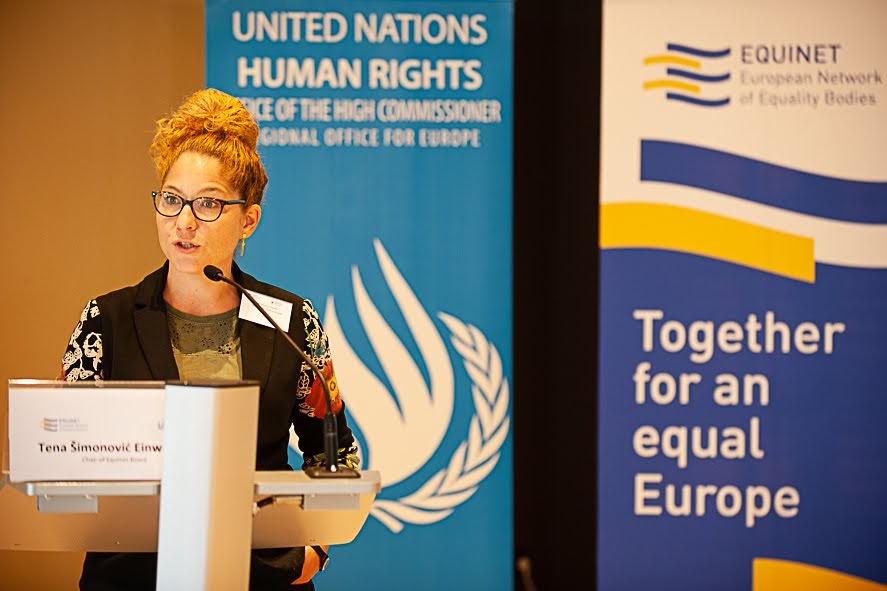The global coronavirus pandemic is a great test for almost all countries, their institutions, health and economic systems, but it also represents a major challenge for each individual. In order to protect the health and life of its citizens, according to the mandatory social distancing as one of the most effective measures to prevent the spread of the virus, many governments have taken strong and decisive action and adopted restrictive measures to try to contain the virus from spreading. This is an introductory part of the blog of deputy Ombudsman Tena Šimonović Einwalter, published on the website of the European network of equality bodies (Equinet) in which she, as Chair of Equinet Executive Board, refers to the impact of the coronavirus pandemic on equality, as well as the role of the equality bodies during and after this pandemic.
Nonetheless, she emphasises, these measures must not undermine or question the importance of the value of equality and non-discrimination as key human rights principles and the institutional framework built to promote and protect it. The importance and urgency of their work as equality watchdogs has not ceased or decreased with the current situation as equality and non-discrimination are not luxury goods necessary only in good times. That is why it is good to see that across Europe, efforts in making sure that everyone is protected from discrimination are continued, and are working to make sure the newly introduced restrictive measures are not used in an abusive way.
Age, health status, disability, gender, racial or ethnic origin, socio-economic status and other grounds and their intersections should be paid due attention to. Unfortunately, some groups of the population are more affected and are already feeling the negative aspects of this crisis, reinforcing the discrimination and violence they were facing previously. The virus itself is particularly dangerous for older persons and those with underlying health conditions, so their right to health and other rights and needs must be vigilantly protected and fulfilled.
In Croatia, we also witness a large number of job losses and further ones announced, accompanied by a corrosion of labour rights, which will particularly impact those least well-off. We should keep in mind that all this is even more difficult for persons living in poverty and likewise recall the situation of migrants, homeless people and Roma living in segregated settlements, without access to basic infrastructure, said Šimonović Einwalter.
The tense social atmosphere in which we live, exacerbated by the restrictive measures and suspension of the freedom of movement and other rights taken by governments to slow the spread of COVID-19, has resulted in major challenges to equality and human rights. We are aware that we need to be supportive of good efforts by decision makers, in order to bolster trust in institutions and experts and to be constructive and available to advise governments to ensure that measures taken do not have unwanted inequality implications, nor create unlawful discrimination.
“In these difficult times, we need more solidarity and more unity. We need more solidarity and unity in Europe, as well as globally. We need more solidarity and unity as equality bodies. And we need more solidarity and unity as people, because only staying together and on an equal basis, will we overcome this crisis”, said deputy Šimonović Einwalter at the end.
Read the entire blog here.


